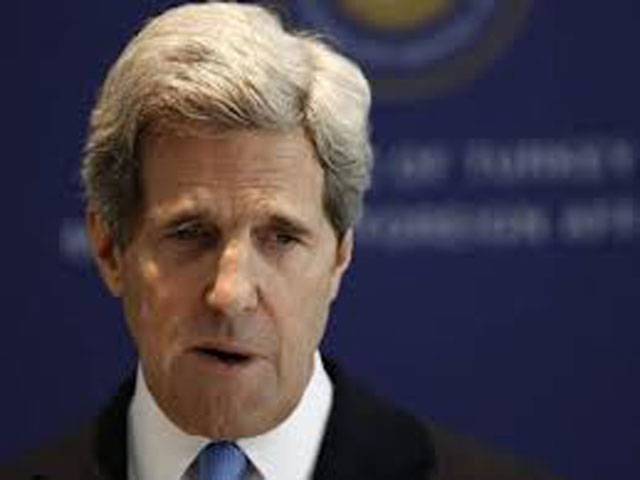JERUSALEM (AFP) - Top US diplomat John Kerry on Monday held talks in Jerusalem with Palestinian premier Salam Fayyad ahead of a meeting with Israeli President Shimon Peres on his second trip to the region in two weeks.
Kerry, who is US President Barack Obama’s new pointman on the Middle East, is back on a fresh mission to coax Israel and the Palestinians back to negotiations which have been frozen since September 2010.
After touching down in Israel on Sunday, he headed straight to the West Bank town of Ramallah for 90 minutes of talks with Palestinian president Mahmud Abbas, in what a top State Department official said was “a constructive meeting.”
Early on Monday, he attended an official ceremony marking Holocaust Memorial Day then headed to the US consulate in west Jerusalem for talks with Fayyad, a US-educated economist who has won respect for cleaning up the finances of the Palestinian Authority and improving security in the West Bank.
“I believe if we can address the security needs of Israel, and they are real, and if we can the state aspirations of Palestinian people, and they are real, I believe that if we can get on a track where people are working in good faith to address the bottom line concerns, it is possible to be able to make progress and to make peace,” Kerry said before the meeting.
He was to meet Peres immediately afterwards then have dinner with Prime Minister Benjamin Netanyahu, with whom he was to hold a working meeting on Tuesday morning.
During his talks with Abbas, their third meeting in little over a month, they first discussed economic development with several top aides, then held a private session at which Kerry insisted the specifics be kept under wraps “in order to keep moving forward in a positive direction.”
Abbas told him the release of prisoners held by Israel was a “top priority” for resuming peace talks, his spokesman told AFP.
The Palestinian leader has repeatedly made clear there would be no return to negotiations without a settlement freeze, but he has also made it known he would suspend for two months all efforts to seek international recognition of a Palestinian state to give US-brokered efforts a chance.
Abbas also wants Netanyahu to present a map of the borders of a future Palestinian state before talks can resume, his political adviser told AFP last week. “Any return to negotiations requires Netanyahu to agree on 1967 borders,” Nimr Hammad said.
Netanyahu has said he would not accept a return to the borders of before the 1967 Middle East war, and on Monday a high-ranking political official told Israel’s Maariv newspaper that presenting a map was out of the question. “It would be insane to present such a map. In effect, this means giving up our most important asset, without the Palestinians having committed themselves to anything - neither recognition of Israel as a Jewish state nor security arrangements,” he said. “It seems that the Palestinians are looking for an excuse to prevent the possibility of renewing the talks.”
Meanwhile, the United Nations said it will reopen aid distribution centres in Gaza on Tuesday, after a four-day closure in response to the storming of its offices by protesters.
The United Nations relief agency for Palestinian refugees, UNRWA, stopped food deliveries after dozens of Gazans forced their way into its Gaza field office last Thursday.
Thursday, April 18, 2024
John Kerry meets Fayyad, Peres on new Mideast trip

Stefanos Tsitsipas advances in Barcelona
4:19 PM | April 18, 2024
Met Office predicts more rains across country till April 29
2:51 PM | April 18, 2024
Punjab changes school timings for summer season
1:55 PM | April 18, 2024
Enemies of Pakistan are unable to digest investment in the country: Ataullah Tarar
1:29 PM | April 18, 2024
IHC restores Bushra Bibi's appeal for shifting to Adiala Jail from Bani Gala
1:24 PM | April 18, 2024
Hepatitis Challenge
April 18, 2024
IMF Predictions
April 18, 2024
Wheat War
April 18, 2024
Rail Revival
April 17, 2024
Addressing Climate Change
April 17, 2024
Justice denied
April 18, 2024
AI dilemmas unveiled
April 18, 2024
Tax tangle
April 18, 2024
Workforce inequality
April 17, 2024
New partnerships
April 17, 2024
ePaper - Nawaiwaqt
Advertisement
Nawaiwaqt Group | Copyright © 2024





